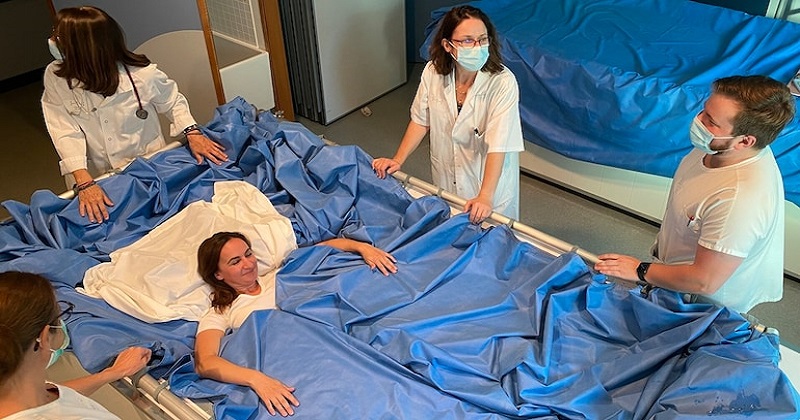
New Delhi: A team of twenty women are participating in a study to understand the effects on female bodies of space travel, snuggling in a waterbed for 5 days in a dry immersion. The study aims to recreate some of the effects of spaceflight on the body.
The future of space travel will be much commercial and long-lasting than what it is today. With the Artemis missions planned for the next few years, beyond the Earth will witness a new race as male and female astronauts jettison from Earth’s surface towards the Moon and beyond. In contrast to male astronauts who have ventured on to the Moon and returned, the first female astronaut to the Moon will launch with Artemis.
On September 21, two participants attended MEDES Space Clinic in Toulouse, France. European Space Agency (ESA) has launched a study called VIVALDI to address the gender gap in science data. The study is the second to be conducted with all women and is the first of its kind in Europe.
In a dry immersion study, volunteers are placed in containers that look like bathtubs, covered with waterproof fabric to keep them dry and evenly suspended in water. The body experiences supportlessness similar to what astronauts experience while floating on the International Space Station, according to the Institute of Space Medicine and Physiology. Physiological and psychological effects on women are practically unknown in this field of study. The study will build on previous male campaigns conducted in Europe and Russia, said Angelique Van Ombergen, ESA’s discipline lead for life sciences.
Read also: 23-yr-old woman who was 8 months pregnant takes pills to abort baby, dies in Chennai
Dry immersion simulates the effects of weightlessness astronauts experience in space where they lose muscle mass and bone density, and their eyesight deteriorates. Furthermore, previous studies have shown that the absence of gravity leads to fluids shifting towards the brain, which can lead to some hearing impairments. Consequently, it becomes crucial to prepare astronauts for such events ahead of time in order to stay healthy in space. ‘The results from this type of research do not only benefit astronauts but have implications for patients on Earth with similar disorders and elderly people,’ the institute said.
The immersion process begins when water covers the subject above the thorax and he or she is immobilized with a cotton sheet covering the legs and trunk. Only the arms and head remain exposed. A recent study involved participants staying in an immersion tank for 24 hours, with as little movement as possible. ‘Each day starts at 7 am with urine and blood samples, and it is filled with scientific protocols and measurements to study how the body adapts,’ the institute said.
Doctors say that all day-to-day activities are done in the water, except for eating, which is done while lying on their backs with their head tilted 6 degrees down to minimise fluid deposition. They also shower outdoors outside of the tank and can transfer to other experiments by tilting their heads down 6 degrees, it added.
This study has been hailed as a significant milestone ahead of the expansion of women’s participation in spaceflight operations. As a result, it could fill in the gaps in data that would help to design better health and medical strategies for women astronauts.

Post Your Comments